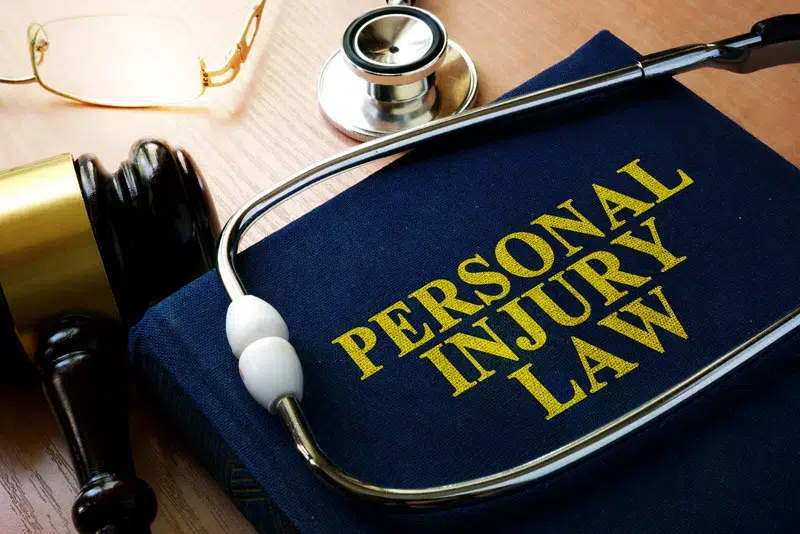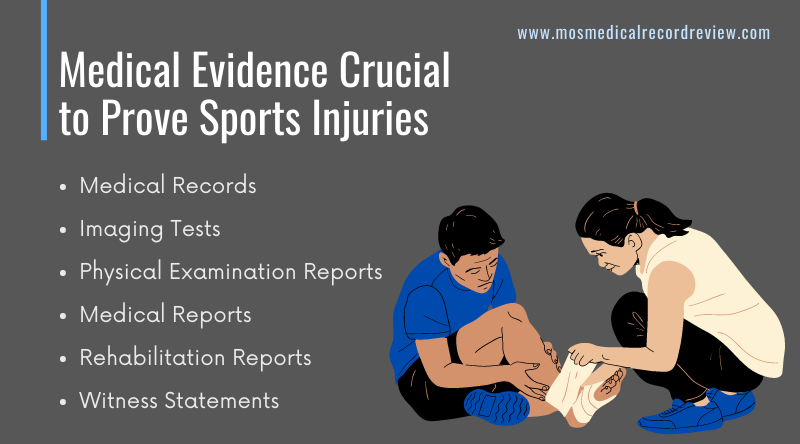Sports injuries are a common occurrence in sporting events, as the nature of sports itself carries inherent risks. Various types of sports injuries can occur, such as brain injuries, neck and spinal injuries, orthopedic trauma, severe lacerations, burn injuries, and football-related head injuries. Defective sports equipment can also contribute to injuries in activities such as paintball, hunting accidents, boating incidents, horseback riding, and trampolining.
Partner with a MOS for Dedicated Medical Review Services.
To successfully establish a sports injury case based on negligence, attorneys require compelling medical evidence. The stronger the evidence presented, the better the outcome of the personal injury case. Both physical and documentary evidence play vital roles in proving negligence. Physical evidence, such as photographs and videos of the injuries, and documentary evidence, including medical records and proof of damages suffered, are crucial in establishing negligence. A thorough medical record review is crucial for building a strong legal strategy. Efficient analysis of medical records can be provided by professional medical record review companies, ensuring a thorough examination of the evidence.
Key elements that experts focus on during the review process are medical case chronology, proof of injury and treatments, cause, extent, long-term impact, future treatment considerations, assessment of permanent disability and work capacity, and identifying missing medical records.
Compelling Medical Evidence to Prove Sports Injuries
To establish the existence and extent of sports injuries, attorneys rely on crucial medical evidence, including:
- Medical records: Detailed medical records provide essential information about the injury, including diagnosis, treatment received, and prognosis.
- Imaging tests: Imaging tests such as X-rays, MRIs, and CT scans provide visual evidence that confirms the presence and severity of the injury.
- Physical examination reports: Physical examinations conducted by medical professionals can reveal physical signs of the injury, such as swelling, tenderness, or limited range of motion. This helps establish a direct link between the injury and the specific accident or sports activity.
- Medical reports: Reports from physicians or specialists who treated the injury provide a comprehensive account of the injury, its nature, and the treatments administered.
- Rehabilitation reports: Reports from rehabilitation professionals shed light on the type and duration of rehabilitation required after the injury, highlighting the extent of its impact on the victim’s ability to participate in sports.
- Witness statements: Statements from witnesses, including coaches, teammates, or trainers, provide additional perspectives and details on how the injury occurred and its subsequent impact on the victim’s ability to engage in sports.
By presenting this vital medical evidence, attorneys can build a robust case, substantiating the occurrence, cause, and consequences of sports injuries, ultimately supporting their clients’ claims for compensation and justice. By collaborating with professional providers of medical record review services, lawyers can strengthen the case and increase the chances of a favorable outcome.
Expert reviewers meticulously arrange the medical records in chronological order, starting from the claimant’s initial date of treatment through to the most recent visits. This organized approach helps attorneys gain a comprehensive understanding of the injury timeline.
Looking for accurate and thorough medical record reviews?
Call us now at (800)-670-2809!
We handle your review needs with precision and efficiency!





